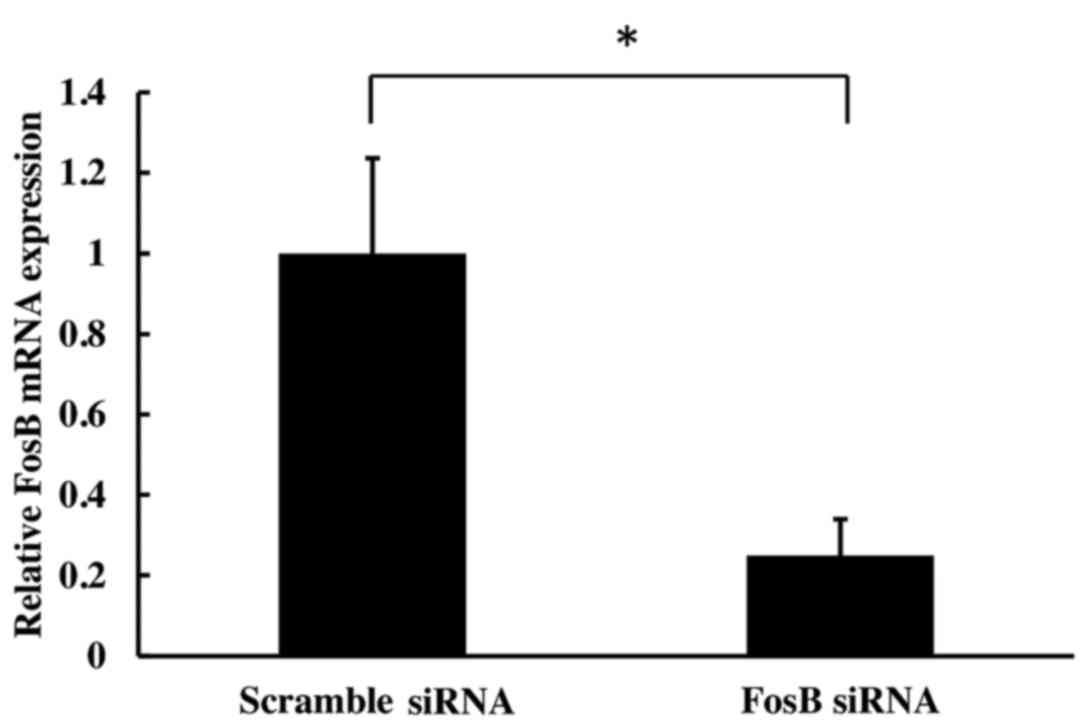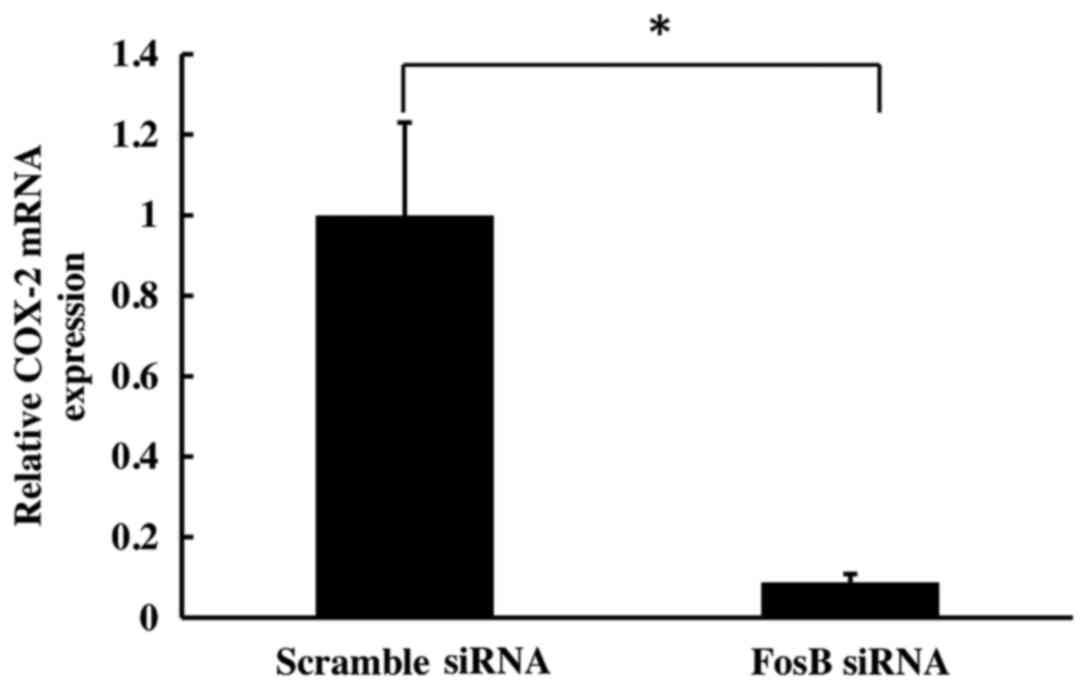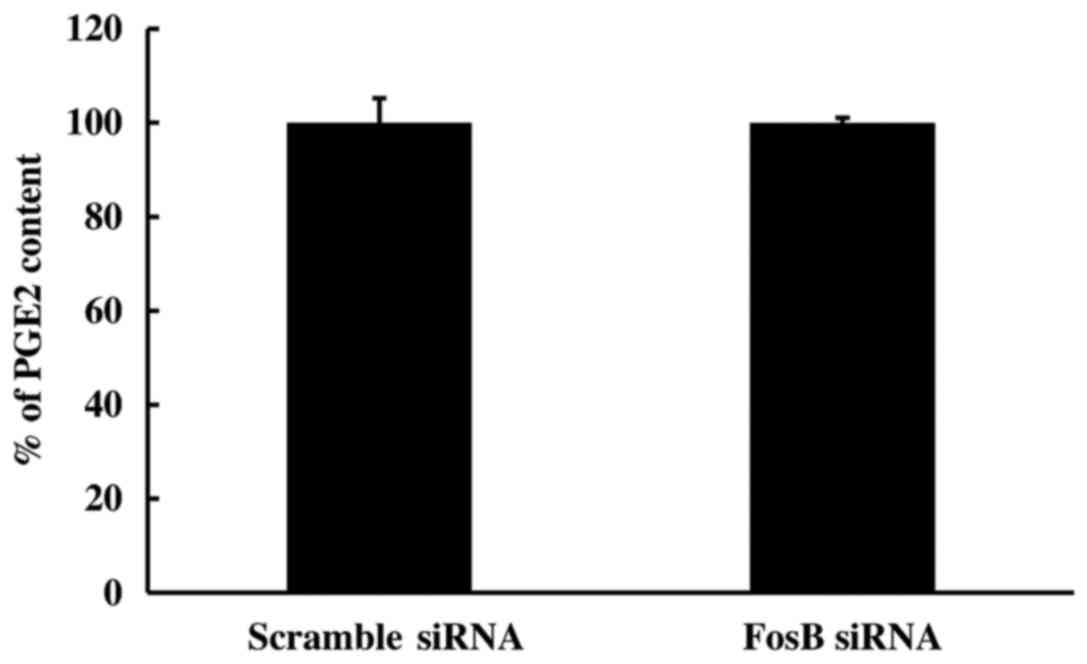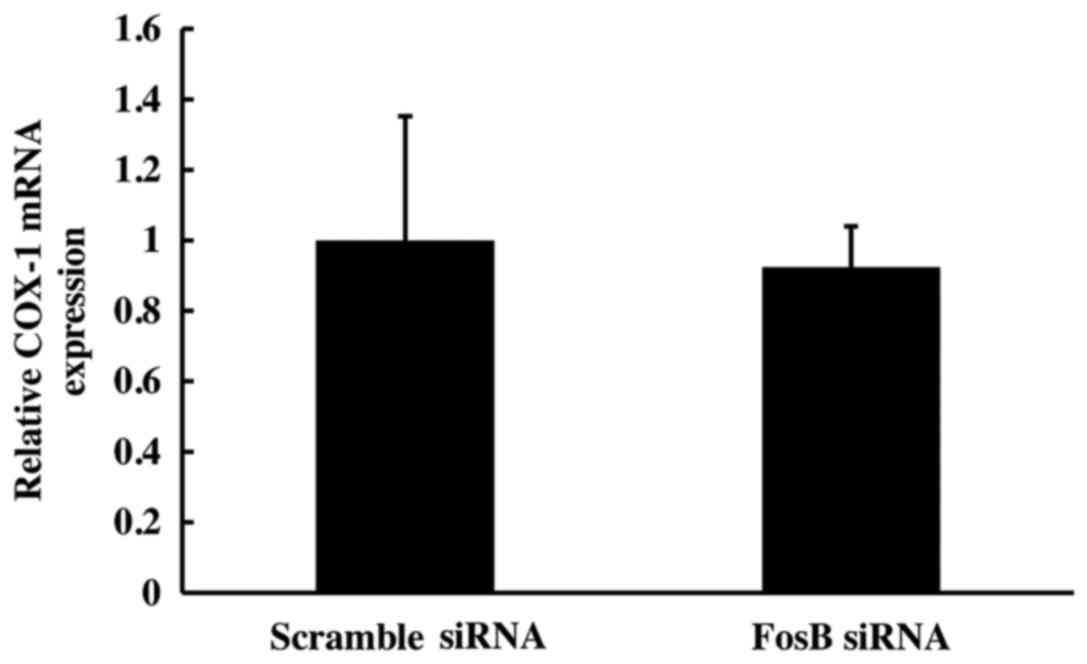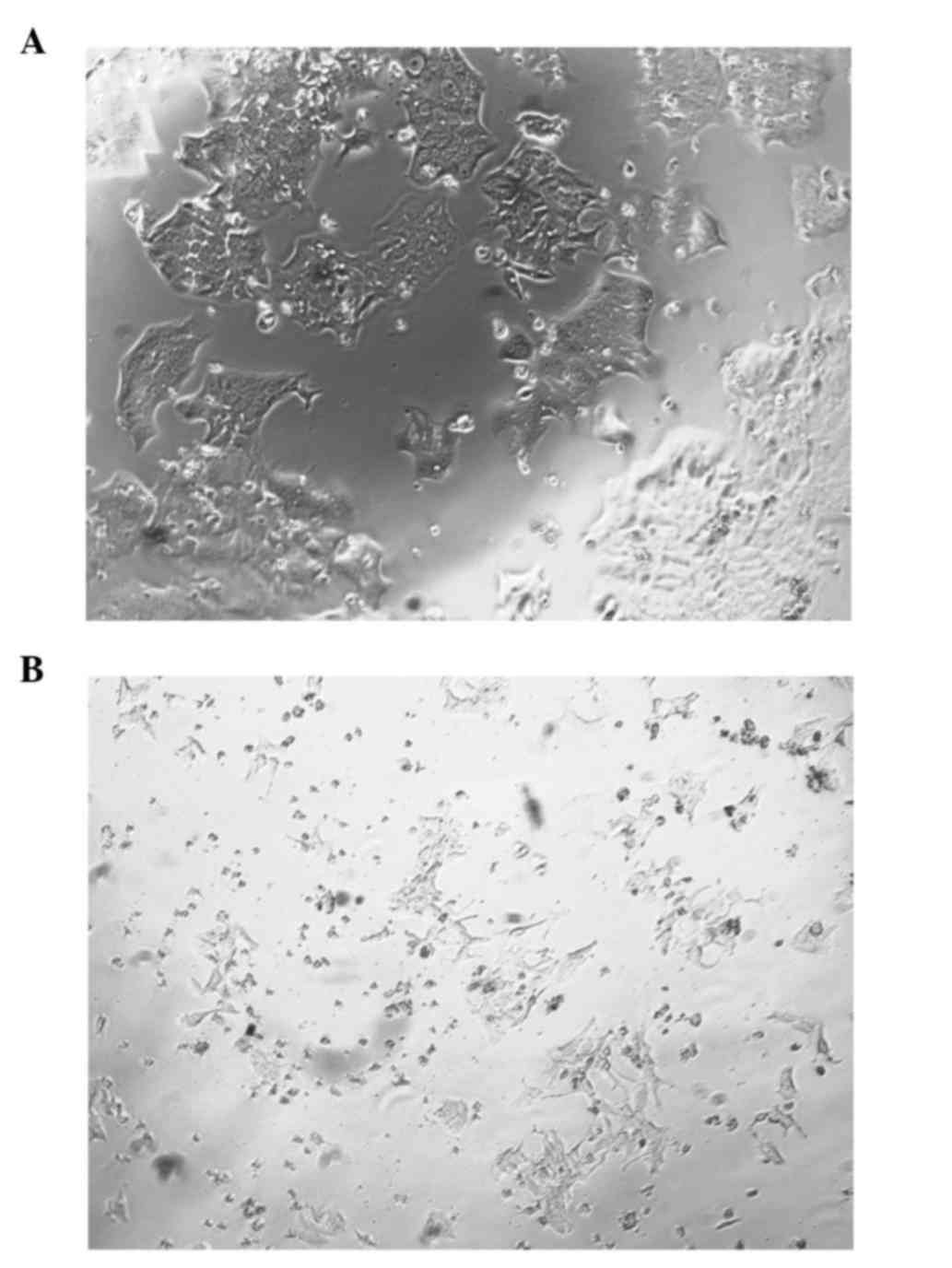|
1
|
International Agency for Research on
Cancer, . GLOBOCAN 2012: Estimated cancer incidence, mortality and
prevalence worldwide in 2012. http://globocan.iarc.fr/Pages/fact_sheets_population.aspxAccessed
January 5, 2016.
|
|
2
|
Coussens LM and Werb Z: Inflammation and
cancer. Nature. 420:860–867. 2002. View Article : Google Scholar : PubMed/NCBI
|
|
3
|
Lutgens MW, van Oijen MG, van der Heijden
GJ, Vleggaar FP, Siersema PD and Oldenburg B: Declining risk of
colorectal cancer in inflammatory bowel disease: An updated
meta-analysis of population-based cohort studies. Inflamm Bowel
Dis. 19:789–799. 2013. View Article : Google Scholar : PubMed/NCBI
|
|
4
|
Lundholm K, Gelin J, Hyltander A, Lönnroth
C, Sandström R, Svaninger G, Körner U, Gülich M, Kärrefors I and
Norli B: Anti-inflammatory treatment may prolong survival in
undernourished patients with metastatic solid tumors. Cancer Res.
54:5602–5606. 1994.PubMed/NCBI
|
|
5
|
Thun MJ, Namboodiri MM and Heath CW Jr:
Aspirin use and reduced risk of fatal colon cancer. N Engl J Med.
325:1593–1596. 1991. View Article : Google Scholar : PubMed/NCBI
|
|
6
|
Narisawa T, Sato M, Tani M, Kudo T,
Takahashi T and Goto A: Inhibition of development of
methylnitrosourea-induced rat colon tumors by indomethacin
treatment. Cancer Res. 41:1954–1957. 1981.PubMed/NCBI
|
|
7
|
Rao CV, Tokumo K, Rigotty J, Zang E,
Kelloff G and Reddy BS: Chemoprevention of colon carcinogenesis by
dietary administration of piroxicam, alpha-difluoromethylornithine,
16 alpha-fluoro-5-androsten-17-one, and ellagic acid individually
and in combination. Cancer Res. 51:4528–4534. 1991.PubMed/NCBI
|
|
8
|
Moorghen M, Ince P, Finney KJ, Sunter JP,
Appleton DR and Watson AJ: A protective effect of sulindac against
chemically-induced primary colonic tumours in mice. J Pathol.
156:341–347. 1988. View Article : Google Scholar : PubMed/NCBI
|
|
9
|
Vane JR: Inhibition of prostaglandin
synthesis as a mechanism of action for aspirin-like drugs. Nat New
Biol. 231:232–235. 1971. View Article : Google Scholar : PubMed/NCBI
|
|
10
|
Rouzer CA and Marnett LJ: Cyclooxygenases:
Structural and functional insights. J Lipid Res. 50:Suppl. S29–S34.
2009. View Article : Google Scholar : PubMed/NCBI
|
|
11
|
Sano H, Kawahito Y, Wilder RL, Hashiramoto
A, Mukai S, Asai K, Kimura S, Kato H, Kondo M and Hla T: Expression
of cyclooxygenase-1 and −2 in human colorectal cancer. Cancer Res.
55:3785–3789. 1995.PubMed/NCBI
|
|
12
|
Sheehan KM, Sheahan K, O'Donoghue DP,
MacSweeney F, Conroy RM, Fitzgerald DJ and Murray FE: The
relationship between cyclooxygenase-2 expression and colorectal
cancer. JAMA. 282:1254–1258. 1999. View Article : Google Scholar : PubMed/NCBI
|
|
13
|
Kunzmann AT, Murray LJ, Cardwell CR,
McShane CM, McMenamin UC and Cantwell MM: PTGS2 (cyclooxigenase-2)
expression and survival among colorectal cancer patients: A
systematic review. Cancer Epidemiol Biomarkers Prev. 22:1490–1497.
2013. View Article : Google Scholar : PubMed/NCBI
|
|
14
|
Cahlin C, Lönnroth C, Arvidsson A,
Nordgren S and Lundholm K: Growth associated proteins in tumor
cells and stroma related to disease progression of colon cancer
accounting for tumor tissue PGE2 content. Int J Oncol. 32:909–918.
2008.PubMed/NCBI
|
|
15
|
Wang D and DuBois RN: An inflammatory
mediator, prostaglandin E2, in colorectal cancer. Cancer J.
19:502–510. 2013. View Article : Google Scholar : PubMed/NCBI
|
|
16
|
Rigas B, Goldman IS and Levine L: Altered
eicosanoid levels in human colon cancer. J Lab Clin Med.
122:518–523. 1993.PubMed/NCBI
|
|
17
|
Pugh S and Thomas GA: Patients with
adenomatous polyps and carcinomas have increased colonic mucosal
prostaglandin E2. Gut. 35:675–678. 1994. View Article : Google Scholar : PubMed/NCBI
|
|
18
|
Yoshimatsu K, Golijanin D, Paty PB, Soslow
RA, Jakobsson PJ, DeLellis RA, Subbaramaiah K and Dannenberg AJ:
Inducible microsomal prostaglandin E synthase is overexpressed in
colorectal adenomas and cancer. Clin Cancer Res. 7:3971–3976.
2001.PubMed/NCBI
|
|
19
|
Asting AG, Carén H, Andersson M, Lönnroth
C, Lagerstedt K and Lundholm K: COX-2 gene expression in colon
cancer tissue related to regulating factors and promoter
methylation status. BMC Cancer. 11:2382011. View Article : Google Scholar : PubMed/NCBI
|
|
20
|
Ashida R, Tominaga K, Sasaki E, Watanabe
T, Fujiwara Y, Oshitani N, Higuchi K, Mitsuyama S, Iwao H and
Arakawa T: AP-1 and colorectal cancer. Inflammopharmacology.
13:113–125. 2005. View Article : Google Scholar : PubMed/NCBI
|
|
21
|
Yang F, Nam S, Zhao R, Tian Y, Liu L,
Horne DA and Jove R: A novel synthetic derivative of the natural
product berbamine inhibits cell viability and induces apoptosis of
human osteosarcoma cells, associated with activation of JNK/AP-1
signaling. Cancer Biol Ther. 14:1024–1031. 2013. View Article : Google Scholar : PubMed/NCBI
|
|
22
|
Shaulian E and Karin M: AP-1 in cell
proliferation and survival. Oncogene. 20:2390–2400. 2001.
View Article : Google Scholar : PubMed/NCBI
|
|
23
|
Kovary K, Rizzo CA, Ryseck RP, Noguchi T,
Raynoschek C, Pelosin JM and Bravo R: Constitutive expression of
FosB and its short form, FosB/SF, induces malignant cell
transformation in rat-A1 cells. New Biol. 3:870–879.
1991.PubMed/NCBI
|
|
24
|
Liao X, Lochhead P, Nishihara R, Morikawa
T, Kuchiba A, Yamauchi M, Imamura Y, Qian ZR, Baba Y, Shima K, et
al: Aspirin use, tumor PIK3CA mutation, and colorectal-cancer
survival. N Engl J Med. 367:1596–1606. 2012. View Article : Google Scholar : PubMed/NCBI
|
|
25
|
Chan AT, Ogino S and Fuchs CS: Aspirin use
and survival after diagnosis of colorectal cancer. JAMA.
302:649–658. 2009. View Article : Google Scholar : PubMed/NCBI
|
|
26
|
Chan AT, Ogino S and Fuchs CS: Aspirin and
the risk of colorectal cancer in relation to the expression of
COX-2. N Engl J Med. 356:2131–2142. 2007. View Article : Google Scholar : PubMed/NCBI
|
|
27
|
Babu RL, Kumar M Naveen, Patil RH,
Devaraju KS, Ramesh GT and Sharma SC: Effect of estrogen and
tamoxifen on the expression pattern of AP-1 factors in MCF-7 cells:
Role of c-Jun, c-Fos, and Fra-1 in cell cycle regulation. Mol Cell
Biochem. 380:143–151. 2013. View Article : Google Scholar : PubMed/NCBI
|
|
28
|
Harwood FG, Kasibhatla S, Petak I, Vernes
R, Green DR and Houghton JA: Regulation of FasL by NF-kappaB and
AP-1 in Fas-dependent thymineless death of human colon carcinoma
cells. J Biol Chem. 275:10023–10029. 2000. View Article : Google Scholar : PubMed/NCBI
|
|
29
|
Kim YJ, Yoon SY, Kim JT, Choi SC, Lim JS,
Kim JH, Song EY, Lee HG, Choi I and Kim JW: NDRG2 suppresses cell
proliferation through down-regulation of AP-1 activity in human
colon carcinoma cells. Int J Cancer. 124:7–15. 2009. View Article : Google Scholar : PubMed/NCBI
|
|
30
|
Rivat C, Le Floch N, Sabbah M, Teyrol I,
Redeuilh G, Bruyneel E, Mareel M, Matrisian LM, Crawford HC,
Gespach C and Attoub S: Synergistic cooperation between the AP-1
and LEF-1 transcription factors in the activation of the matrilysin
promoter by the src oncogene: Implications in cellular invasion.
FASEB J. 17:1721–1723. 2003.PubMed/NCBI
|
|
31
|
Xue X and Shah YM: Hypoxia-inducible
factor-2α is essential in activating the COX-2/mPGES-1/PGE2
signaling axis in colon cancer. Carcinogenesis. 34:163–169. 2013.
View Article : Google Scholar : PubMed/NCBI
|
|
32
|
Xue X, Taylor M, Anderson E, Hao C, Qu A,
Greenson JK, Zimmermann EM, Gonzalez FJ and Shah YM:
Hypoxia-inducible factor-2α activation promotes colorectal cancer
progression by dysregulating iron homeostasis. Cancer Res.
72:2285–2293. 2012. View Article : Google Scholar : PubMed/NCBI
|
|
33
|
Stamatakis K, Jimenez-Martinez M,
Jimenez-Segovia A, Chico-Calero I, Conde E, Galán-Martínez J, Ruiz
J, Pascual A, Barrocal B, López-Pérez R, et al: Prostaglandins
induce early growth response 1 transcription factor mediated
microsomal prostaglandin E2 synthase up-regulation for colorectal
cancer progression. Oncotarget. 6:39941–39959. 2015.PubMed/NCBI
|
|
34
|
Seo T, Tatsuguchi A, Shinji S, Yonezawa M,
Mitsui K, Tanaka S, Fujimori S, Gudis K, Fukuda Y and Sakamoto C:
Microsomal prostaglandin E synthase protein levels correlate with
prognosis in colorectal cancer patients. Virchows Arch.
454:667–676. 2009. View Article : Google Scholar : PubMed/NCBI
|
|
35
|
Almendingen K, Larsen LN, Fausa O, Bratlie
J, Høstmark AT and Aabakken L: Selective COX-2 inhibition affects
fatty acids, but not COX mRNA expression in patients with FAP. Fam
Cancer. 9:571–580. 2010. View Article : Google Scholar : PubMed/NCBI
|















